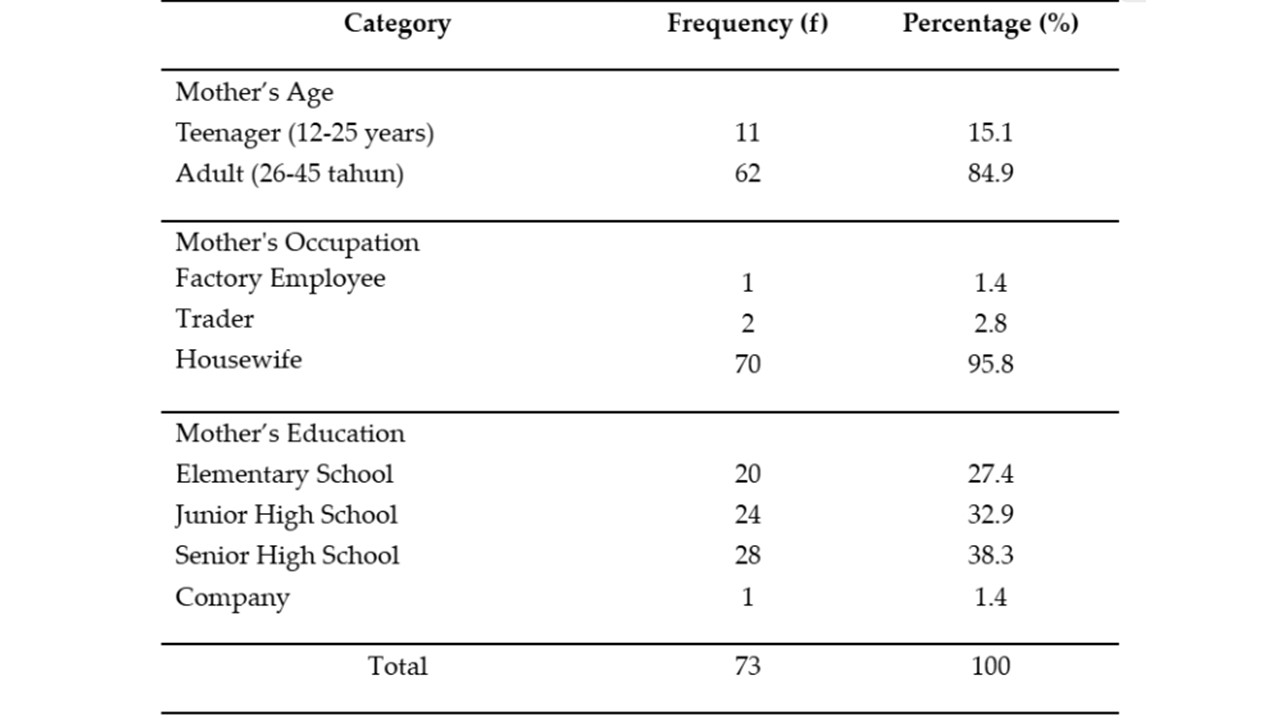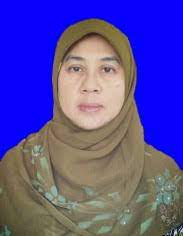GEMATI Program: Reducing the Incidence of Stunting
DOI:
https://doi.org/10.23917/bik.v18i2.10468Keywords:
Baduta ( Bawah Dua tahun), Stunting, Gemati, Village's programAbstract
Chronic malnutrition can cause growth and development disorders in children. This case is named stunting. Stunting is often experienced by toddlers in Indonesia. One of the main concerns of Tegal Regency Government is the high incidence of stunting. Efforts to decrease the incidence of stunting with structured interventions involving the community, especially parents who have children below two years of age. The study aimed to assess the efficacy of the Gemati program, namely the community assistance movement in Tegal Regency. The study took a quantitative approach and used a pre-experimental design with a single-group pretest-posttest design. All of the respondents were mothers of toddlers who were small in height. The sampling method was a total sampling. The study’s findings revealed an improvement in toddler mothers’ knowledge and skills in detecting and preparing a balanced nutritional menu. The government and the community must collaborate to ensure that the stunting prevention program is carried out effectively in order to reduce stunting. The government determines the policies to control stunting and protect the rights of mothers and children, increasing food security and environmental sanitation, and giving health education about stunting continually. The Gemati program has to be implemented sustainably and applied to all villages that have a high incidence of stunting so that the acceleration of handling stunting in Tegal Regency can achieve the results optimally.
Downloads
References
Ar-Rasily, O. K., & Dewi, P. K. (2016). Factors that Influence Parental Knowledge Regarding Genetic Disorders that Cause Intellectual Disabilities di Semarang City. Jurnal Kedokteran Diponegoro, 5(4). https://doi.org/10.33221/jiki.v9i03.353
Aryati, D., Irianto, S. E., & Karyus, A. (2023). Analysis of Factors Influencing The Incidence of Stunting for Toddlers di Lampung Utara Regency. JPKM: Jurnal Profesi Kesehatan Masyarakat, 4(2), 155–163. https://doi.org/10.47575/jpkm.v4i2.492
Bongga, S. (2019). Factors That Influence Primigravida Mother's Knowledge About Early Breastfeeding Initiation (IMD) at the Sa'dan District Health Center North Toraja in 2018. MPPKI (Media Publikasi Promosi Kesehatan Indonesia): The Indonesian Journal of Health Promotion, 2(2), 93–98. https://doi.org/10.31934/mppki.v2i2.563
Husnaniyah, D., Yulyanti, D., & Rudiansyah, R. (2020). The Relationship of The Knowledge Level and Incidence of Stunting. The Indonesian Journal of Health Science, 12(1), 57–64. https://doi.org/10.32528/ijhs.v12i1.4857
Kusumawati, D. D., Budiarti, T., & Susilawati. (2021). The Relationship between Education Level and the Incidence of Stunting in Toddlers. Stiker Al Irsyad Al Islamiyyah Cilacap, 6(1), 2598–3857.
Ministry of Health of the Republic of Indonesia. (2018). Bulletin of Stunting.
Ministry of Health of the Republic of Indonesia. (2021). Pocket Book of Indonesian Nutritional Status Study Results (SSGI) at National, Provincial, Regency/City Levels in 2021. Ministry of Health of the Republic of Indonesia, Jakarta. https://repository.badankebijakan.kemkes.go.id/id/eprint/4899
Mutingah, Z., & Rokhaidah, R. (2021). The Relationship Between Maternal Knowledge, Attitude and Stunting Prevention Behavior in Toddlers. Jurnal Keperawatan Widya Gantari Indonesia, 5(2), 49. https://doi.org/10.52020/jkwgi.v5i2.3172
Nirmalasari, N. O. (2020). Stunting in Children: Causes and Risk Factors of Stunting in Indonesia
. Qawwam: Journal For Gender Mainstreming, 14(1), 19–28. https://doi.org/10.20414/Qawwam.v14i1.2372
Nursa’iidah, S., & Rokhaidah. (2022). Education, Occupation and Age with Knowledge of Mothers of Toddlers About Stunting. Indonesian Jurnal of Health Development, 4(1), 9–18.
Nutrition Landscape Information System. (2019). Country Profile Indicators Interpretation Guide. In Nutrition landscape information system (NLIS) Country Profile (2nd ed.). World Health Organization. www.who.int/nutrition
Rehena, Z., Hukubun, M., & Nendissa, A. R. (2021). The Influence of Nutrition Education on Mothers' Knowledge about Stunting in Kamal Village, West Seram Regency. Moluccas Health Journal, 2(2), 62–69. https://doi.org/10.54639/mhj.v2i2.523
Rehusisma, L. A, Indriwati, S. E , and Suarsini, E. (2017). Development of Booklet and Video Learning Media to Strengthen the Character of Clean and Healthy Living. Jurnal Pendidikan: Teori, Penelitian, dan Pengembangan, Volume: 2 Nomor: 9 Halaman: 1238—1243. https://scispace.com/pdf/pengembangan-media-pembelajaran-booklet-dan-video-sebagai-3bvvj8aoat.pdf
Rohmah, M., Mufida, R. T., & Agustina, R. (2022). Education on PMBA (Infant and Child Feeding) Practices to Increase Mother’s Knowledge and Skills in Feeding as an Effort to Prevent Stunting. Jurnal Kebidanan, 11(2).
Sari, N. A. M. E., Mirayanti, N. A. K., & Andriana, K. R. F. (2022). The relationship between maternal knowledge and attitudes in providing balanced nutrition with efforts to prevent stunting in toddlers. Jurnal Keperawatan, 14(S1), 27–38.
Sartika, A. N., Khoirunnisa, M., Meiyetriani, E., Ermayani, E., Pramesthi, I. L., & Nur Ananda, A. J. (2021). Prenatal and postnatal determinants of stunting at age 0–11 months: A cross-sectional study in Indonesia. PLoS ONE, 16(7 July), 1–14. https://doi.org/10.1371/journal.pone.0254662 PubMed: 34260622
Siregar, Y. (2015). The Factors that Influence Mothers’ Knowledge about Malnutrition for Toddlers Aged 2-5 Years in Siswo Mulyo Timur Hamlet, Kwala Begumit Village, Stabat District, Langkat Regency. Jurnal Ilmiah Keperawatan IMELDA, 1(1), 42–47.
Smale-Jacobse, A. E., Meijer, A., Helms-Lorenz, M., & Maulana, R. (2019). Differentiated Instruction in Secondary Education: A Systematic Review of Research Evidence. Frontiers in Psychology, 10(November). https://doi.org/10.3389/fpsyg.2019.02366 PubMed: 31824362
Suiraoka, I. P., & Supariasa, I. D. N. (2012). Health Education Media. Yogyakarta: Graha Ilmu.
Trihono, Atmarita, Tjandrarini, D. H., Irawati, A., Utami, N. H., Tejayanti, T., & Nurlinawati, I. (2015). Stunted (Stunting) di Indonesia, Problem and Its Solutions. In Badan Penelitian dan Pengembangan Kesehatan (1st ed.). Lembaga Penerbit Badan Penelitian dan Pengembangan Kesehatan. http://scioteca.caf.com/bitstream/handle/123456789/1091/RED2017-Eng-8ene.pdf?sequence=12&isAllowed=y%0Ahttp://dx.doi.org/10.1016/j.regsciurbeco.2008.06.005%0Ahttps://www.researchgate.net/publication/305320484_SISTEM_PEMBETUNGAN_TERPUSAT_STRATEGI_MELESTARI
Vice President Republic of Indonesia. (2018). National Strategy to Accelerate Stunting Prevention 2018-2024. In Vice President Republic of Indonesia. https://www.globalfinancingfacility.org/sites/gff_new/files/Indonesia-GFF-Investment-Case-ENG.pdf
Wawan, A., & Dewi, M. (2011). Theories & Measurement of Knowledge, Attitude, and Human Behavior. Yogyakarta: Nuha Medika.
Wibowo, S., & Suryani, D. (2013). Effect of Health Promotion Audio Visual Method and Pocket Book Method on Increasing Knowledge of the Use of Monosodium Glutamate (MSG) in Housewives. Jurnal Kesehatan Masyarakat (Journal of Public Health), 7(2), 67–74. https://doi.org/10.12928/kesmas.v7i2.1040
World Health Organization. (2021). Child Malnutrition: Stunting Among Children Under 5 Years of Age. https://www.who.int/data/gho/indicator-metadata-registry/imr-details/72
Yanti, D. A. M., & Agustin, E. (2022). The Effect of Health Education on Toddler Nutrition on Mother's Knowledge. Holistik Jurnal Kesehatan, 16(6), 552–560. https://doi.org/10.33024/hjk.v16i6.8287
Yulianti, I. (2014). Booklet to increase knowledge of eradicating mosquito nests (PSN) for dengue hemorrhagic fever (DBD) in Plumbungan Village, Karang Malang District, Sragen Regency. Unnes Journal of Public Health, 2(2). https://journal.unnes.ac.id/sju/ujph/article/view/2993
Zurhayati, & Hidayah, N. (2022). Factors Associated with Stunting in Toddlers. Journal of Midwifery Science, 6(1), 1–10. https://doi.org/10.36341/jomis.v6i1.1730

Downloads
Submitted
Accepted
Published
How to Cite
Issue
Section
License
Copyright (c) 2025 Anisa Oktiawati Nisa, Arif Rakhman, Khodijah, Ita Nur Itsna

This work is licensed under a Creative Commons Attribution 4.0 International License.


















